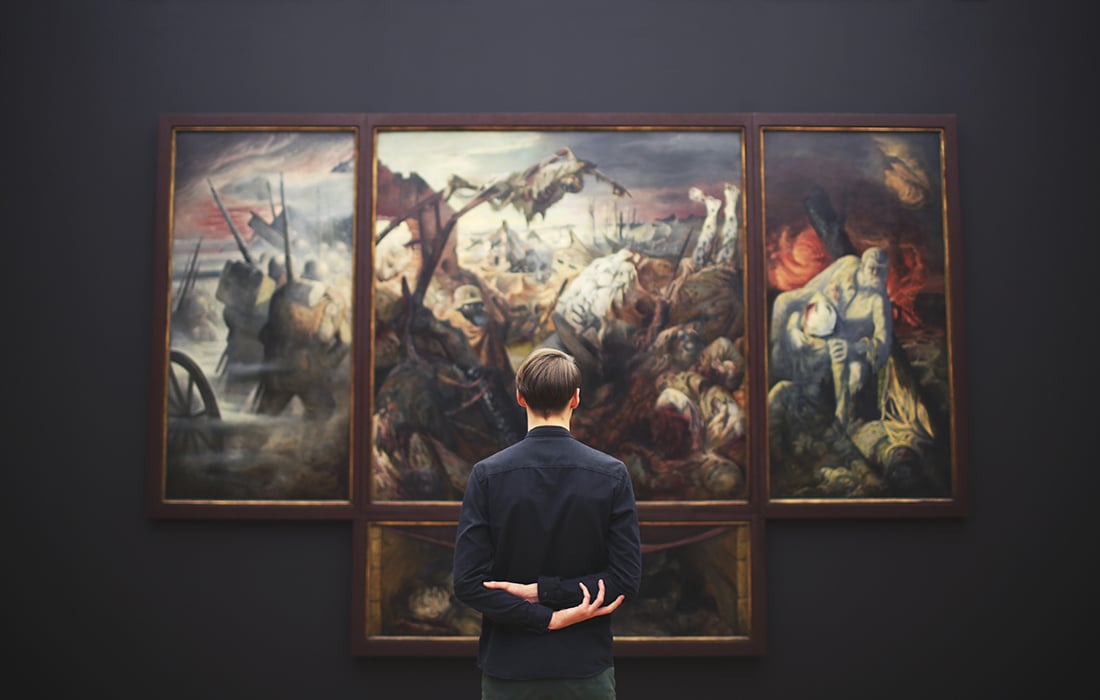
Photo: Igor Miske on Unsplash
Museums face strict re-opening rules
Museums and galleries across Europe are preparing to open, but the impact of social distancing measures and a lack of tourists raises concerns for their viability.
Eighteen countries in Europe have either reopened their galleries and museums, or will be doing so within the next month.
Twelve, including the UK, have yet to set a date for reopening.
The rules and frameworks under which these institutions are being permitted to open vary widely, but the experience of Sweden’s museums – some of which have remained open throughout the period of lockdown elsewhere – suggests visitors will be in no rush to return.
Opening experiences
Details of when and how museums across Europe are likely to be opening have been published by NEMO, the Network of European Museum Organisations, which has created a map giving an overview of progress, which will be updated as new information emerges.
Among the museums that are currently open, limitations on visitor numbers are the norm. The Swedish museums that have remained open have been allowed a maximum of 50 visitors. In Lithuania, where museums re-opened this week, one person per 10 square metres is allowed to enter the museum. No groups are allowed, except families.
Where museums are open, reports suggest that people have been afraid to go to them. This has been the case in Sweden, and also in Serbia, where social distancing measures are in place. Exhibition rooms are partitioned for disinfection and a disinfectant barrier has been created in the museum's entrance. Visitors must wear masks and gloves.
Most Croatian museums have been able to reopen, though some in the capital Zagreb have not, having been seriously damaged by a powerful earthquake in March.
In Germany, where the lockdown is being gradually released, the German Museums Association has published recommendations for museums to prepare for their reopening, including social distancing, limits on visitor numbers, smart queuing systems and systems for protecting employees.
Coming soon
Countries due to reopen their museums within the next week include Poland, Montenegro, Hungary, Slovenia and Iceland. Their strategies for reopening vary.
Open-air museums only will be opening this week in Hungary and are likely to reopen in Estonia at the end of May. But in Hungary, museum buildings aren’t expected to reopen until August, and no dates have been set for buildings in Estonia. In Greece, open air archaeological sites will re-open on mid-May.
In Poland, where museums are scheduled to open on 4th May, the National Institute for Museums and Public Collections has published guidelines for a three-stage reopening: the transition from working remotely to on site; starting museum activities without direct contact with the audience; and opening museums and exhibitions themselves.
Although Iceland’s museums will reopen – with a 50-visitor limit – the main concern is that tourism will disappear and nobody will visit them.
Museums and galleries in Belgium and Italy are set to re-open from 18th May. Bart De Baere, director of the Museum van Hedendaagse Kunst in Antwerp, said the MHKA is "ready to serve as a test room for that post-lock down experience”. Museum visitors in Italy will have to wear masks and the institutions will cap visitor numbers.
No news yet
NEMO believes “if managed well and if appropriate security and safety measures are adopted, there is no reason to keep museums closed.”
Nonetheless, the UK is one of 12 countries where decisions have yet to be made about their reopening.
Some countries are more optimistic than others. A statement from the Ministry of Culture in France declares optimism, as “culture in France is experiencing a high level of importance and is being promoted accordingly.”
The Museums Association in the UK is less confident, saying: “A big problem for the museums will be the disappearance of the international tourism and the losses that will accompany them long after the end of the acute crises. It is important to think about this now and to be in dialogue with the government.”
Join the Discussion
You must be logged in to post a comment.